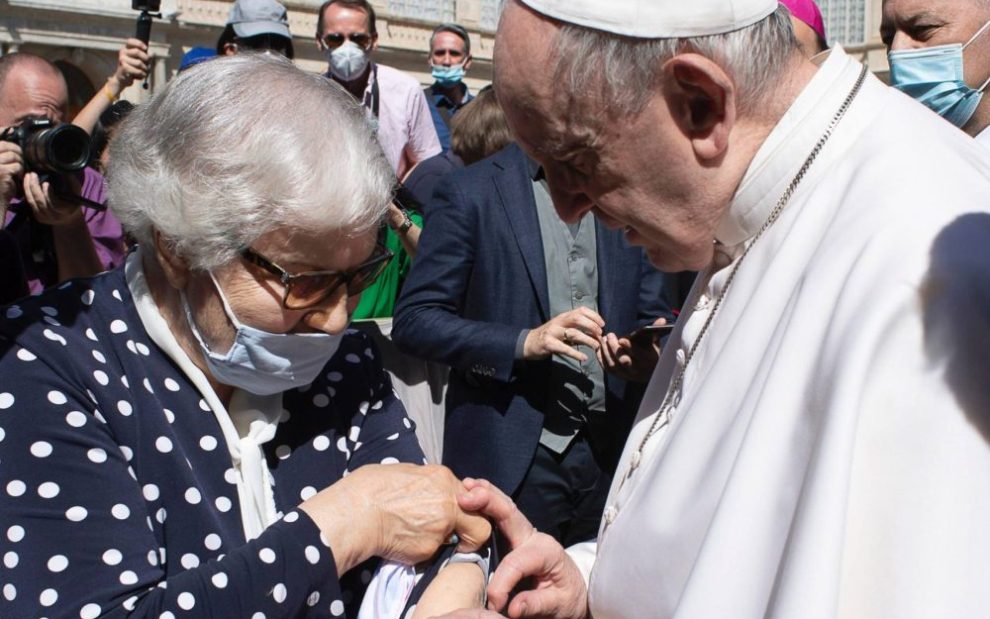“No one is useless and no one is expendable. This also means finding ways to include those on the peripheries of life. For they have another way of looking at things; they see aspects of reality that are invisible to the centres of power where weighty decisions are made.” (Fratelli Tutti)
From his very first homily, Pope Francis set a clear tone for his papacy. He implored, “The church is called to come out of herself and to go to the peripheries, not only geographically, but also the existential peripheries: the mystery of sin, of pain, of injustice, of ignorance and indifference to religion, of intellectual currents and of all misery.” Over 13 years, he condemned the “globalization of indifference” in which both people and planet are thrown away. From that very first homily, Pope Francis began to inspire me to reimagine my own understanding of my vocation as a theologian.
My specialty is Catholic social teaching, which uses the method “see, judge, act” and emphasizes engagement in the world. One of my favorite lines in all the tradition is from Rerum Novarum (On Capital and Labor): “Nothing is more useful than to look upon the world as it really is.” The document also says to look beyond the confines of the conventional and secular “for the solace to its troubles.”
As a theologian, this motivated me to put theology into dialogue with the data and insights from economics, development studies, public health, and so on. Yet, Pope Francis seemed to be asking more of me as a theologian. To reject the culture of indifference in my work, I needed to be accountable in concrete ways to those on the peripheries.
In Fratelli Tutti, Pope Francis argued that those on the margins “see aspects of reality that are invisible to the centers of power where weighty decisions are made” and therefore their questions and perspectives need to inform the agenda. For me, implementing this within my theology meant prioritizing the questions and contributions of women. I have sought to do theology informed by and accountable to the questions and insights of those who have shared their stories with me.
In 2022, I had the privilege to be part of Doing Theology from the Existential Peripheries, a global theology project coordinated by the Dicastery for Promoting Integral Human Development. A common theme among the women I interviewed was a feeling that Pope Francis saw them and wanted them welcomed within the church. In New Jersey, I interviewed Christine, a Catholic transgender woman active in her local parish, who said, “And all that we ask is that we are included in our faith, in our parish communities and active in those communities just like everyone else.”
From New York to El Paso, the women I met expressed deep faith in a God who accompanies them. To continue Pope Francis’ ministry, theology must not only accompany but be accountable to those on the margins. Our theology and the questions investigated must be accountable to the joys and hopes, grief and anxiety of those on the peripheries.
This article also appears in the July 2025 issue of U.S. Catholic (Vol. 90, No. 7, pages 16-21). Click here to subscribe to the magazine.
Image: Wikimedia Commons
















Add comment